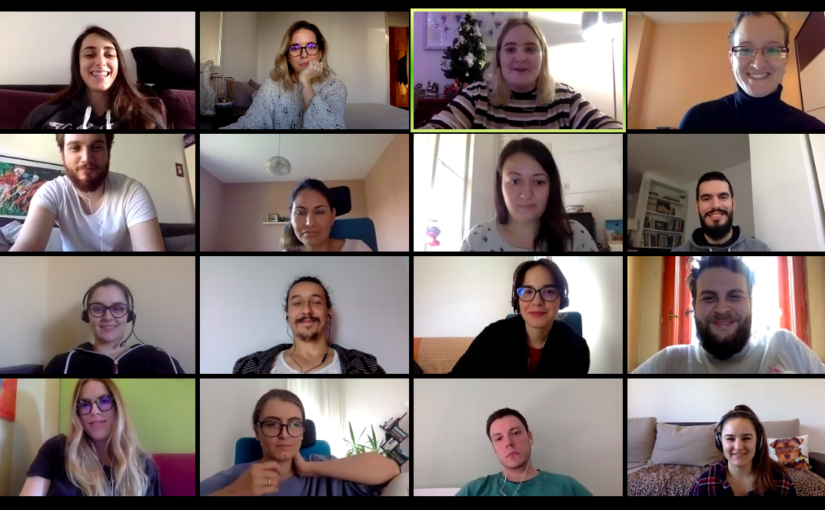There’s no point in sugarcoating it – when it comes to bad years, 2020 was right up there with some of the worst of them. Health, relationships, jobs – none of these were safe from the COVID-19 pandemic. Life as we knew it was completely transformed, and most of us at FishingBooker are still reeling from it.
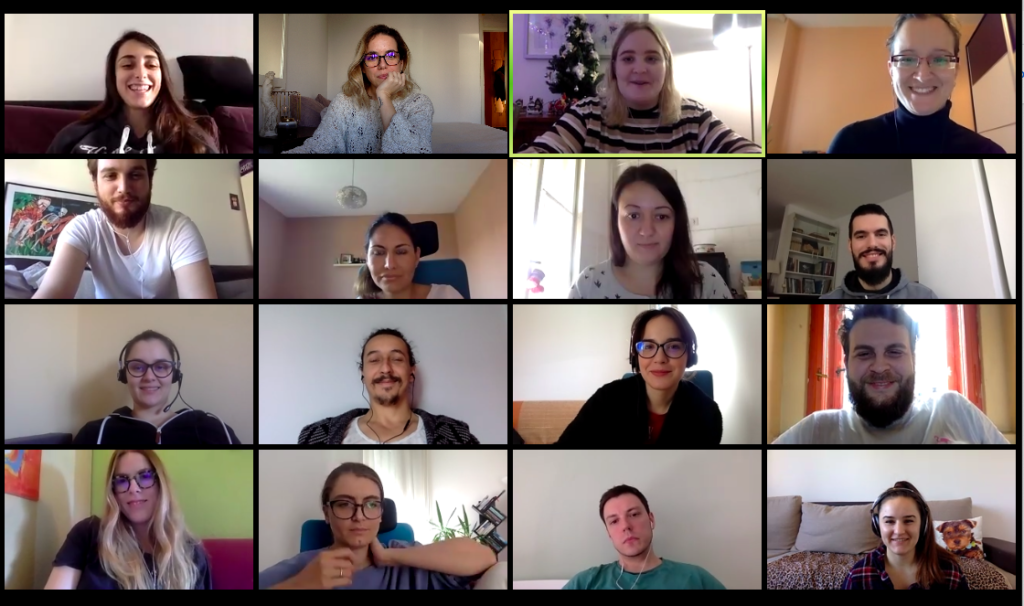
The travel and tourism sector can be pretty fickle anyway, and the fishing charter industry often involves weathering both metaphorical and literal storms. Our bread and butter is providing customers with memorable angling adventures – but who’s booking a fishing trip in the middle of a global pandemic? With hindsight, it was obvious that our business would take a huge hit.
At the time, though, we didn’t have the luxury of hindsight to guide us. Like many people around the world, we ignored the implications of COVID at first. We all fell victim to the classic “It’ll never happen to me!” mentality, which had a direct impact on how we prepared for the pandemic as a business.
COVID taught our company some crucial lessons. One of the main ones? It’s important to strategize and start planning for potentially disastrous events before they even hit you. Another learning curve? In order to stay afloat, we’d have to make drastic changes that would hugely impact the culture of our company, as well as the people who make it so successful.
However, there were some silver linings. We focused on processes such as automation, internal reorganization, and career paths. We saw our YoY revenue grow during our high season, despite COVID cases skyrocketing. And we gained the type of insight that only comes after a struggle – most importantly, that we want to be a company that prides itself on being great instead of big. Here’s the full story…
The Beginning: Underestimating the Unexpected
It wasn’t until mid-March 2020 that we really started to understand the severity of the pandemic. We were still working from our office at this point and life was continuing as normal, despite disturbing news reports.
What made us finally pay attention was when the USA announced a travel ban and subsequent State of Emergency. Our main customer base is located in the US, as well as the captains we work with. The number of incoming bookings immediately started nosediving, and quickly hit rock bottom. This is when we realized that the pandemic was no longer a far-flung issue. It was on our doorstep, and we had to react.
Although Belgrade wasn’t experiencing high numbers of COVID cases, we decided to temporarily close our office on March 16th. Our Operations team was only expecting this to last for a week, along with the rest of us, but they still committed to making the transition as smooth as possible. They implemented a dedicated procedure (and delivery process!) to help us set up shop at home.
It was a novelty at first, with plenty of opportunities for sleeping in late and ordering takeout. Little did we know that, for many of us, it would actually be close to a full year before we stepped foot into the office again.
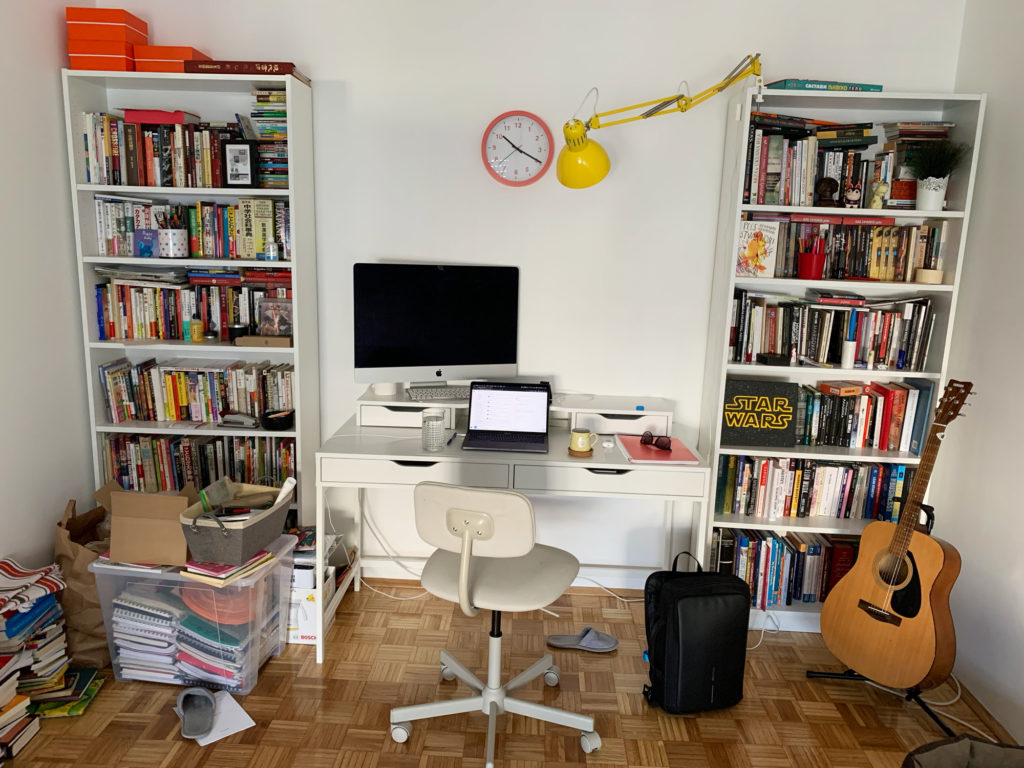
For a company as social as ours, we knew working remotely would cause a huge shift in the way we communicated. We introduced weekly online “all-hands” meetings involving the whole company.
These meetings were probably one of the biggest wins during these tough times. They raised the bar in terms of transparency, and allowed teammates to share their thoughts and ask even the most difficult of questions. These were the times when people wanted certainty more than anything, but certainty was non-existent. The only thing left was pure honesty and doing everything in our power to keep the team together.
As well as supporting our teammates, we also had our customers and captains to contend with. The US State of Emergency made us realize how crucial it was to implement a new “COVID safety” business strategy.
We hadn’t planned for this and we reacted just in the nick of time. We doubled down on our most vital metrics and implemented a COVID cancellation policy for captains and customers, as well as publishing COVID updates and projections every week.
This way, we would have all the relevant data at our fingertips and would be able to react accordingly, no matter what happened on the business end. Our core message during this time was simple: safety first, for our customers, captains, and teammates.
Tough Times: Pay Cuts, Postponements, and Pure Survival
March may have been rough, but April was a whole other beast entirely. The US State of Emergency was extended until at least the end of the month, which meant that our “cash in” number kept on declining. On April 13th, our entire daily revenue equaled just one booking. It was a huge low point for us. We had cash reserves in the bank, but they wouldn’t last forever, and we had no idea how long the pandemic would continue.
The main goal during April was pure survival. We wanted to come through the pandemic without resorting to unpaid leave or laying people off. To avoid this, all possible non-salary costs were immediately reduced. We froze our hiring efforts. We postponed payments to external vendors. We extended our remote-work policy indefinitely, and started toying with the idea of giving up our office lease entirely.
And then there were more painful, personal cuts. In April, our CEO and COO reduced their salaries to the minimum wage authorized by the government, with some senior members of FishingBooker choosing to follow suit.
Pay cuts between 20% to 40% were implemented for the entire company, along with a four-day work week a month later in May. In this same month, three-day work weeks were introduced for teams whose activities and workloads had slowed down due to the fact we were barely seeing any bookings.
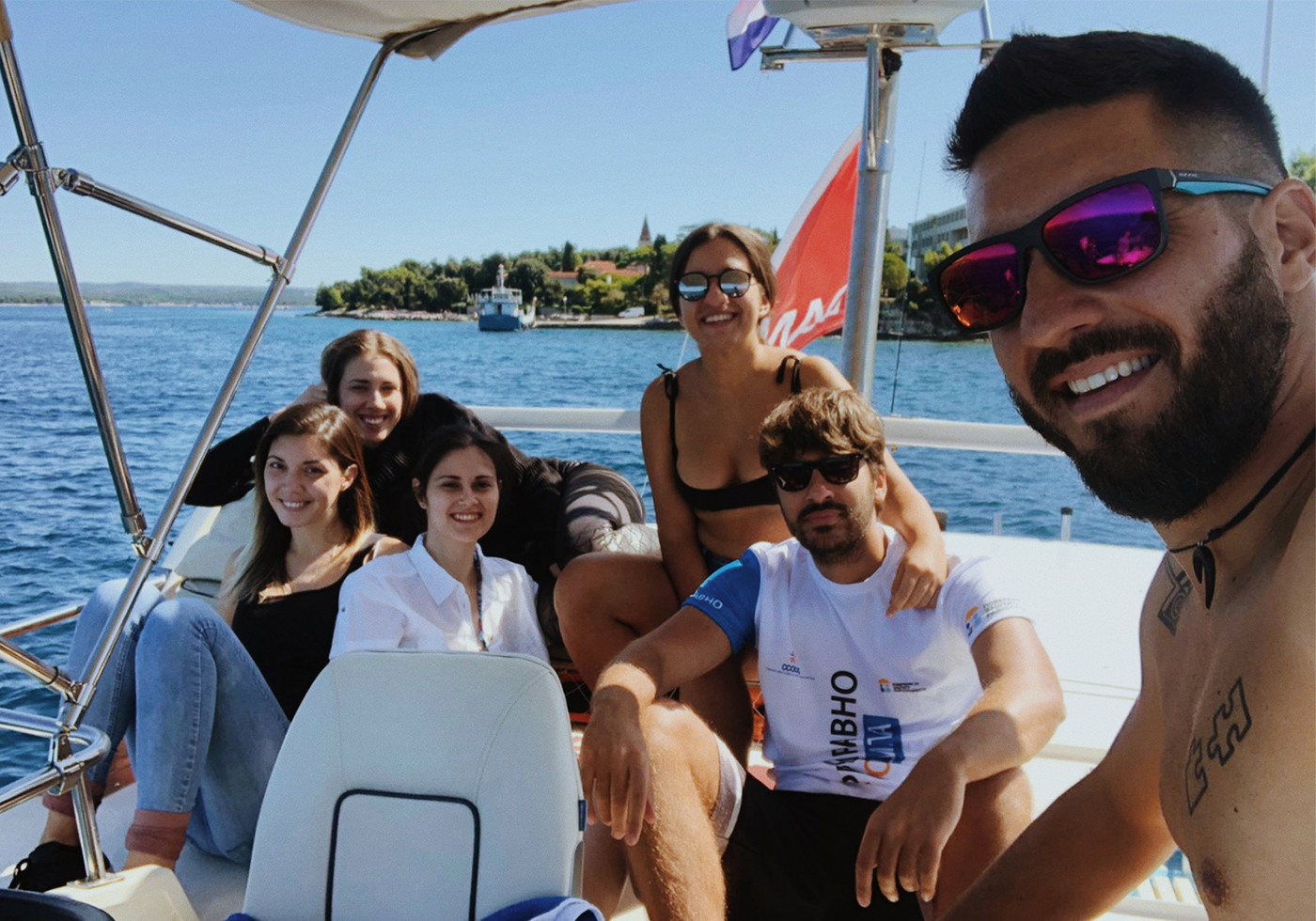
We’ll make no bones about it: These two months were incredibly tough going, not just business-wise but emotionally and mentally. As well as salary reductions, the benefits that FishingBooker prides itself on such as health insurance and company fishing trips were halted, some temporarily and some indefinitely.
All the personal, painful cuts made during this time were for a crucial reason – to try and ensure that none of us at FishingBooker would lose our jobs, and that we could weather this storm together.
It worked. No one at FishingBooker lost their job due to the pandemic, but taking pay cuts and losing out on benefits that we’d come to expect were tough pills to swallow. They definitely shook our company culture to its core. Many of our teammates were grateful to have jobs at all, but anxious about what the future held for them.
Looking back, it’s easy to say that cutting back on pay and benefits was the best and simplest way to conserve money and keep the company afloat. At the time, however, we had no guarantee that these changes would preserve our company.
Nevertheless, our teammates held it together and kept their eyes on our main goal of survival. We all knew that the only way the company could carry us through to better days was if we tried to carry the company.
Surprisingly, it turned out that our new office-optional setup actually benefited most of our teammates, with the majority choosing to work from home indefinitely. So we decided to make it permanent. And you know how diamonds are only formed under intense pressure? Our toughest month actually helped lead to some of our biggest achievements…
The Silver Linings: Career Progression, New Approaches, and Betting Big on Automation
With a global pandemic to contend with and survival mode fully switched on, it would’ve been easy for other aspects of our jobs, such as strategy and product developments, to disappear into the background. However, 2020 saw us betting big on a new approach to our product – even more automation.
Before the pandemic hit, some of our teammates were working on optimizing parts of our product, especially in the Product and Engineering teams. In 2020, they worked to further automate our “Change,” “Decline,” and “Cancel” functionalities. These allow for easier changes to bookings with no involvement from our support teams.
Giving our customers and captains the tools they needed in order to be more independent was reflected in other parts of our business. Our Coordinators switched from phone-based onboarding to creating onboarding videos and in-product tips, allowing captains to have more control over this process. Skip forward to 2021, and the majority of our captain-facing services are now automated.

While these projects were already underway when the pandemic hit, we developed them further as a direct result of it. We also completely reworked how we process booking credits, in order to offer customers discounts on future trips if they decide to opt for credits rather than cancelling. COVID and the tens of thousands of cancellations it brought with it made this a top priority.
Automation wasn’t the only aspect of our business that we focused on. Our Operations team introduced tailored job descriptions, learning paths, and cross-team initiatives. This made it possible for more of us to move laterally into a new position; and, by cultivating our in-house talent, we reduced the need to hire externally.
Focusing on the people who work for FishingBooker, as well as their individual skills, goals, and motivations, made us realize one thing: We pretty much have everything we need to be successful right here at our fingertips.
With a little bit of luck and our ruthless focus on the most profitable marketing campaigns, we managed to increase our ROAS (Return on Advertising Spend) by 50%. This marketing switch combined with the overall change in how we run business means that 2020 marked the most successful year in our eight-year-long history.
The Recovery: High Season, Low Morale, and a Sense of Stability
There’s one question that probably every business owner and employee who worked through the COVID pandemic has been asked: “When did you feel like everything was going to be okay?”
For us, the months of June and July 2020 brought clear signs of improvement and stability with them. It was high season, which is when we usually see the biggest number of trips booked and realized. We were making money again, and were managing to actually grow our YoY revenue.
Let’s rewind slightly. Before high season rolled around, we spent a lot of our time preparing for new COVID-related health measures and weren’t sure what to expect, even though the summer months are usually incredibly busy for us. We knew that the travel industry was being hit especially hard. However, the fishing industry differs from the travel and tourism industry in two important ways:
- Fishing is an outdoor activity;
- Anglers fish locally, too.
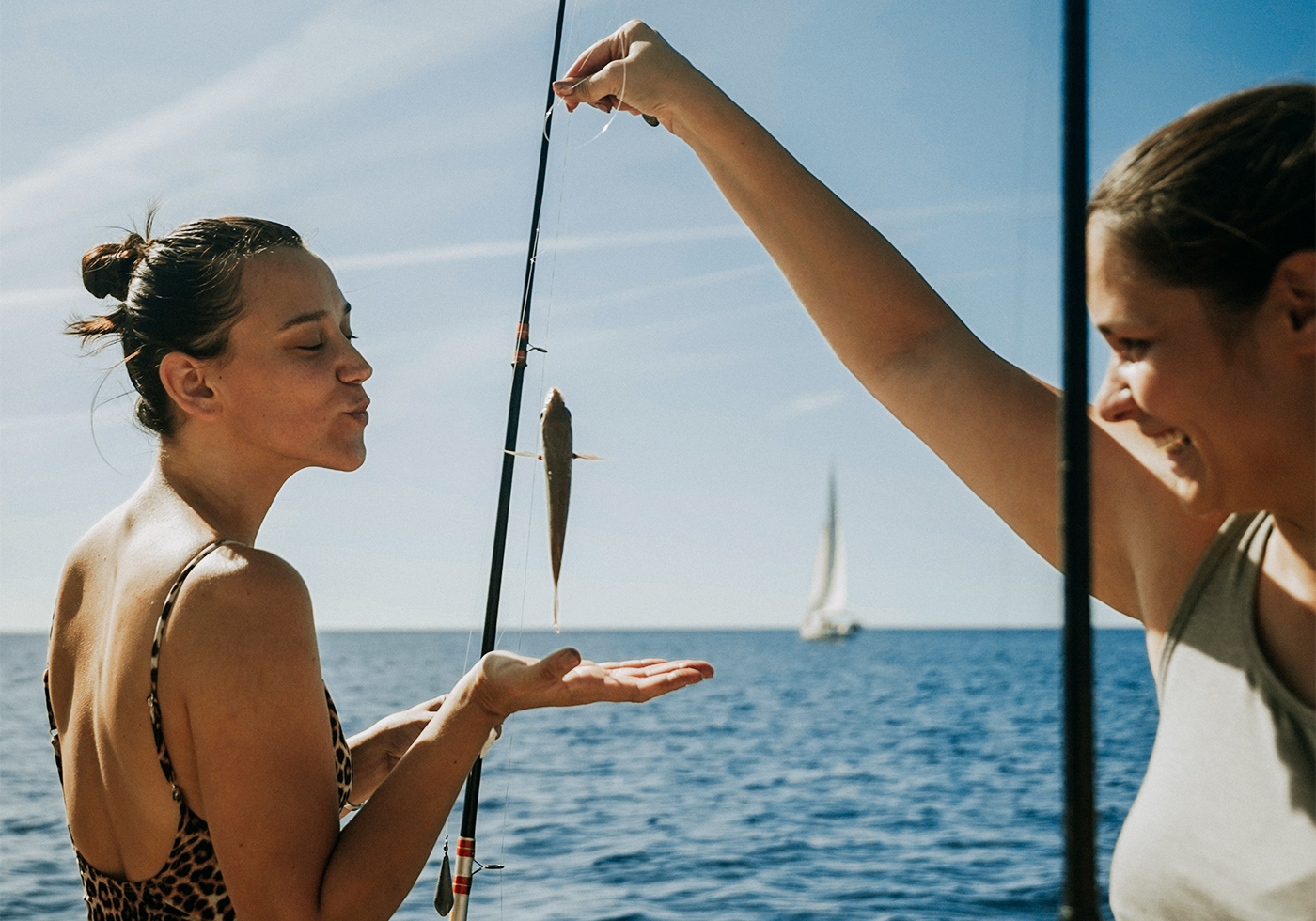
Even with the travel ban in place, trips could still take place locally, and customers looking to fish close to home make up a pretty big portion of our market. Although we put a lot of work into reacting to the pandemic, this unique aspect of the charter fishing industry played a huge part in allowing us to survive and be successful when other companies couldn’t be. It definitely shed light on how certain aspects of survival can come down to sheer luck.
The success of our high season didn’t set the precedent for the rest of 2020, though. September through to January 2021 was a slow period, with October to December being especially tough. Our cash flow and revenue was growing more slowly than we anticipated and morale was dropping within the company. Everything seemed to indicate that the next lockdown or worldwide panic was on the way.
Our eNPS (a system designed to help employers measure employee satisfaction) score and feedback at the beginning of the pandemic in April was high, with teammates highlighting FishingBooker’s values, prioritising of people, and clear communication as being especially strong.
In early October, however, our eNPS number dropped dramatically. The initial shock of the pandemic had worn off and our teammates were no longer in survival mode. People wanted more focus on learning and development, clearer processes and procedures, and most of all, the return of a real sense of community. They were also frustrated by the pay cuts and lack of pay rises earlier in the year.
We were able to reintroduce pay raises that same October, and the purpose of our all-hands meetings was discussed and re-defined in order to improve communication across the company. Certain benefits came back as soon as we were stable enough to reintroduce them, but the long-lasting impact of the pandemic means that we’re not sure when, or if, we’ll be able to bring back all of them.
Something we have brought back, however, is hiring. At the beginning of 2021, we opened up applications for our Engineering and BizDev teams. Not only did this mean we were stable enough to welcome new teammates, but seeing fresh faces was a reminder of life pre-pandemic, and how we’d survived everything that had happened since.
We’re navigating 2021 with cautious optimism, more aware than ever of how quickly our company – and life – can change in an instant.
The New Normal: Being Great Instead of Big
Although it’s impossible to prepare for the unexpected, it’s safe to say that, at FishingBooker, we had some experience in adapting to new situations even before the pandemic. Our industry requires it, after all. We’re used to facing these moments together, learning from them, and growing. At the beginning of the pandemic, all that mattered was surviving as a company; yet, together, we set a foundation that allowed us to thrive.
We saw some highs, sure, but also plenty of lows. We had to make tough decisions based on assumptions and logic, knowing that the pandemic wouldn’t operate in a logical way, and with no real guarantee of how things would work out. Now, just as we had to adjust to a new normal during the pandemic, we’re adjusting to the world slowly opening up again.
C.S. Lewis said that experience is “the most brutal of teachers,” and this pandemic has been especially merciless, in aspects both personal- and business-related. But it taught us this: We can conquer tough times as a small but powerful team, and there is plenty of value in being great instead of big. It wasn’t smooth sailing, but we definitely grew from it: not bigger, but greater than before.
